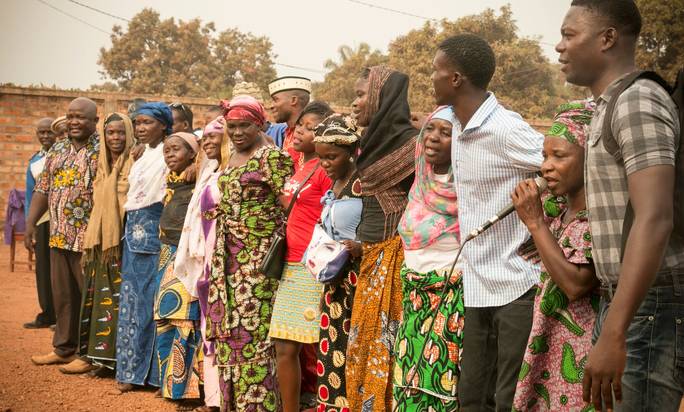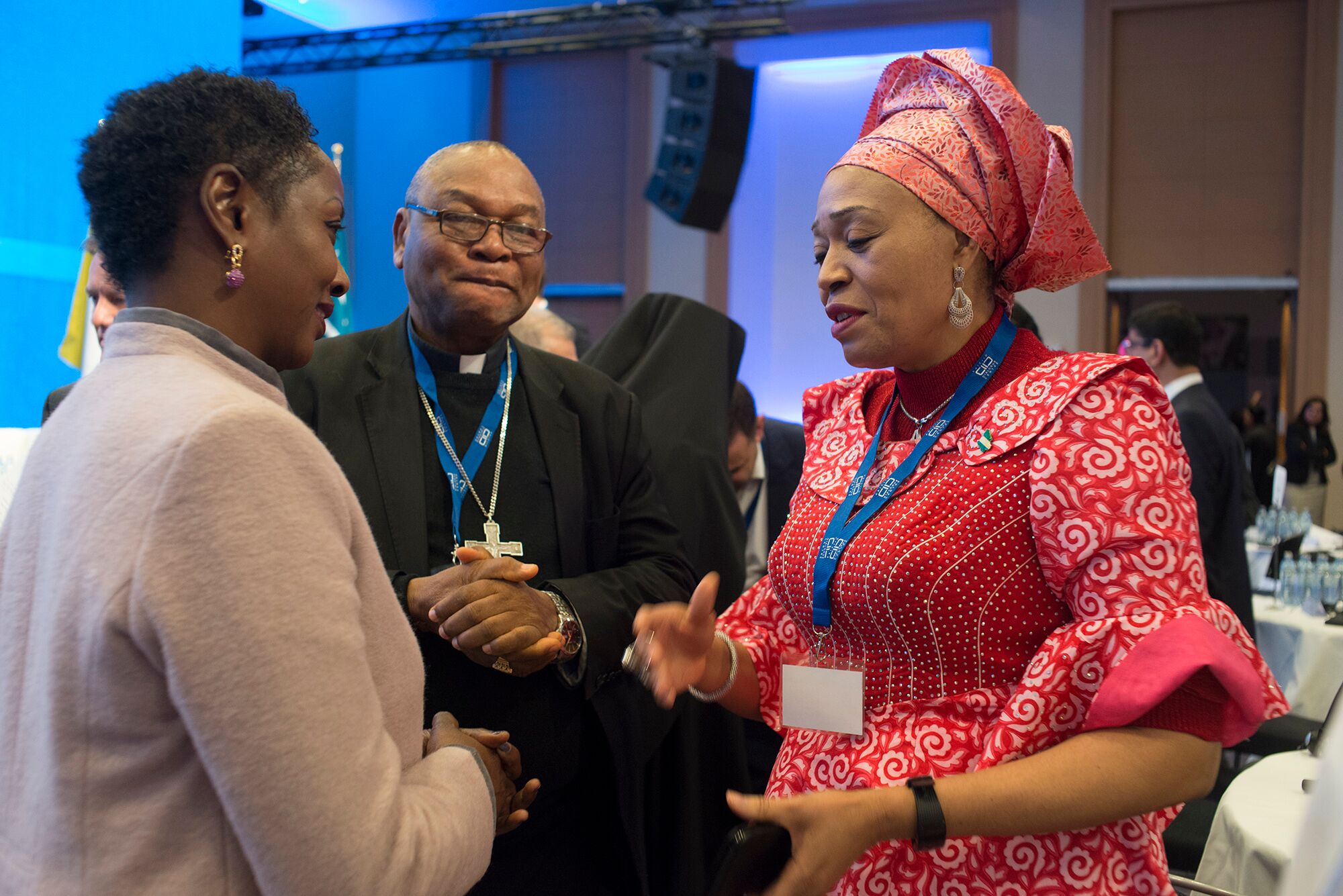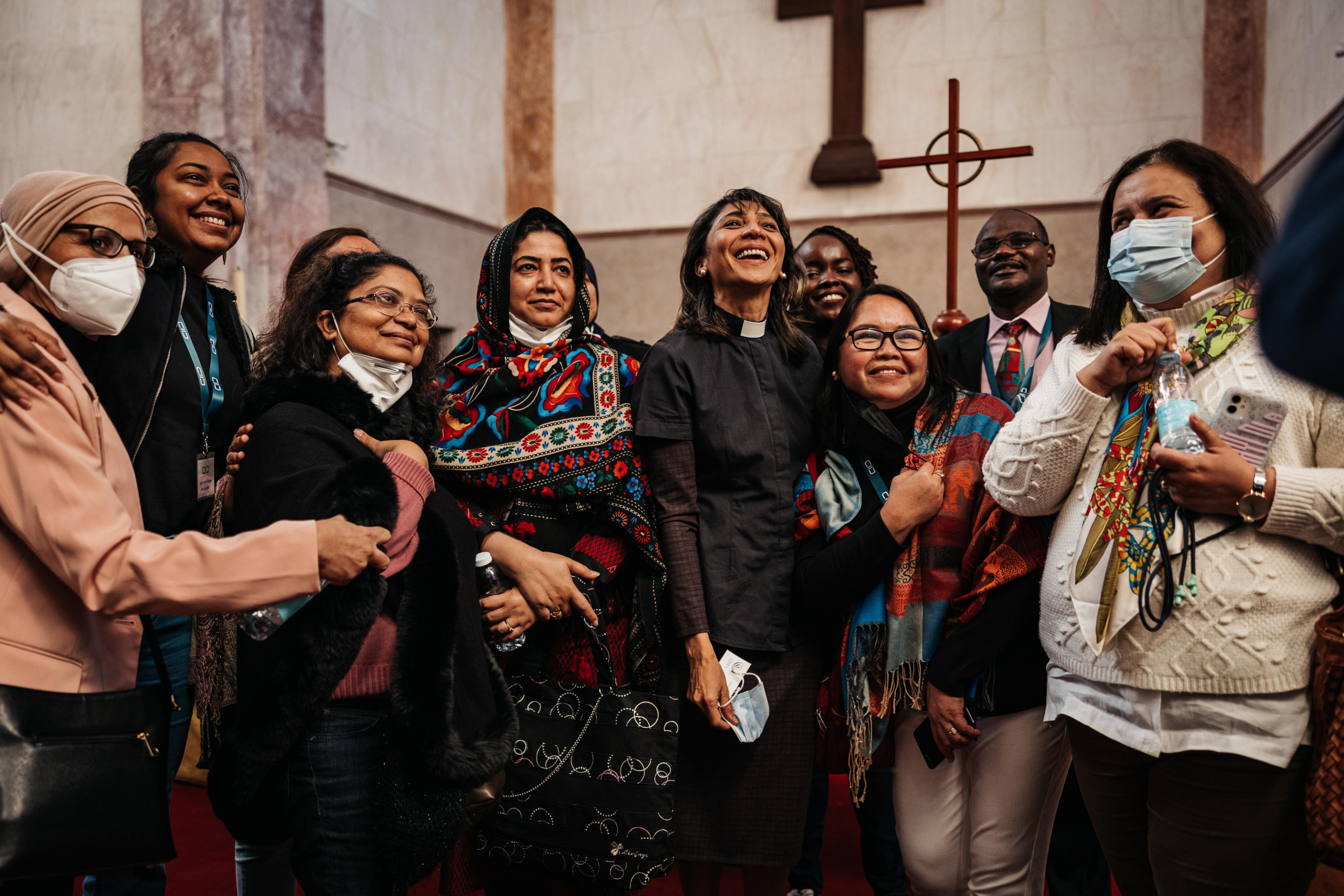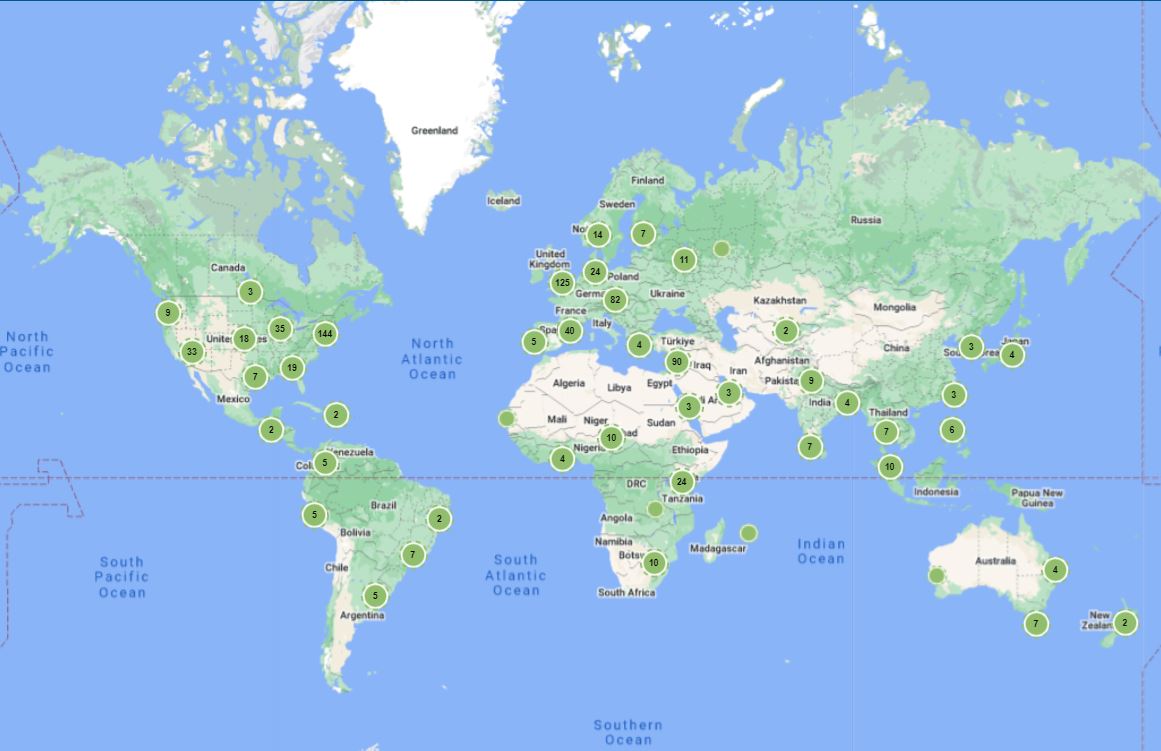Promising Practices
Promising Practices is a collation and expansion of existing documentation on promising practices in interreligious dialogue. Our database offers guidelines and focuses on the concrete implementation of interreligious and intercultural dialogue practices around the world.

Disclaimer:
Through providing different aspects and ideas our aim is to compliment the great work that has been already done in the field of Interreligious and Intercultural Dialogue. Information and field data published in this resource are for informational purposes only, and neither KAICIID nor the Dialogue Knowledge Hub guarantee in any way success of the implementation of the activity.
While we wish all the activities and initiatives featured in this resource could be replicable in as many context around the world as possible, there are often certain limitations, such as the suitability for particular cultures or religious communities. However, there is always room to explore and adjust activities in regards to the community’s environment.
- Laos
- Peru
- Tanzania
- Advocacy
- Capacity Building & Empowerment
- Confessional / Religious / Spiritual Activities
- Democracy
- Educational Programmes
- Freedom of Expression
- Freedom of Religion and Belief
- HIV
- Human Security
- Intercultural Dialogue
- Interreligious Dialogue
- Intrareligious Dialogue
- Networking
- Peace
- Pluralism
- Shared Human Values
- Social Cohesion & Citizenship
- Social Work & Community Service
- Women's Rights
- Youth
- Buddhism
- Multireligious
Interfaith Support for HIV Patients
People affected by HIV have to face prejudice and stereotypes and tend to be isolated from the community, especially in religious contexts. Interfaith communities can be mobilized to unite and tackle the issue of HIV, and support patients, therefore including them in their communities, breaking stereotypes, and fostering coexistence. Different religious communities or interfaith groups can work on a solidarity program with a specialized organization, to show solidarity with affected patients.
Support for HIV patients can take the form of a video project that breaks stereotypes around those the virus. It shows people of different backgrounds dealing with the virus, their hardships and the social pain they go through. Sharing different narratives proves how anyone can be affected by HIV and challenges the stigma around it.
A theatre group can also engage people of different religious backgrounds and affected by HIV to raise awareness of their reality through theatre. The aim is to raise awareness of HIV within religious communities, to create safe spaces for affected individuals.
- Peru
- Sri Lanka
- USA
- Advocacy
- Capacity Building & Empowerment
- Confessional / Religious / Spiritual Activities
- Democracy
- Diplomacy
- Educational Programmes
- Freedom of Expression
- Freedom of Religion and Belief
- Information Distribution
- Intercultural Dialogue
- Interreligious Dialogue
- Networking
- Peace
- Pluralism
- Shared Human Values
- Social Cohesion & Citizenship
- Women's Rights
- Youth
- Christianity
- Indigenous Traditions
- Islam
- Multireligious
Interfaith Travel
Interfaith learning through international and interfaith travel to different countries, as well as weekend immersion trips to local houses of worship help build trust and relationships. In every conflict or area of tension, there are different sides to the story. The dual narrative tourism initiative is meant to provide visitors with two successive different narratives from two different guides, each one narrating their own perspective, for them to build their own opinion and expand their understanding of the situation. This practice can also take the form of visits to different religious spaces. Opening one’s religious space to others is a way of showing a facet of one’s religious identity and break down misconceptions. Inviting people to visit a place of worship is an opportunity to increase awareness and educate participants about a particular religion, answer questions and reinforce one’s faith through.
Interfaith travel can involve visiting different regions or countries. Interfaith region consists of touring one given region to shed light on similarities in terms of religious integration. Hence, this practice uses travel and tourism to focus on the question of identity and culture regardless of faith, and fosters interfaith unity through initiating discussions on interreligious similarities and differences.
Moreover, in countries where there are still indigenous communities, city-dwellers and these communities are not well-linked, as they live far away from the cities and are rather isolated. Interfaith travel can enable people from the city to reconnect with their backgrounds and the way their ancestors use to live, in order to recreate a link between all communities and to promote and support the indigenous way of life.
- Costa Rica
- India
- Peru
- South Africa
- USA
- Advocacy
- Capacity Building & Empowerment
- Confessional / Religious / Spiritual Activities
- Democracy
- Diplomacy
- Educational Programmes
- Environment
- Freedom of Movement
- Information Distribution
- Intercultural Dialogue
- Interreligious Dialogue
- Intrareligious Dialogue
- Networking
- Peace
- Physical Infrastructure
- Shared Human Values
- Social Cohesion & Citizenship
- Christianity
- Islam
- Judaism
- Multireligious
Environment Campaign
By organising an environmental campaign, whether through trips to a public space, creating eco-villages, or fasting for the climate, this practice can bring people of different religions and backgrounds together to unite around the same values. They get together to work on a project designed to take care of the environment and to raise awareness of and advocate for it. Depending on the needs, the practice can be organised by religious communities, NGOs, schools and/or any level of government, as well as by any committed individuals. By promoting environmental issues, this promising practice can inspire people to collaborate, work with each other against their differences, and be environmentally friendly, thus it increases interfaith awareness and creates a space to gather and protect nature.




